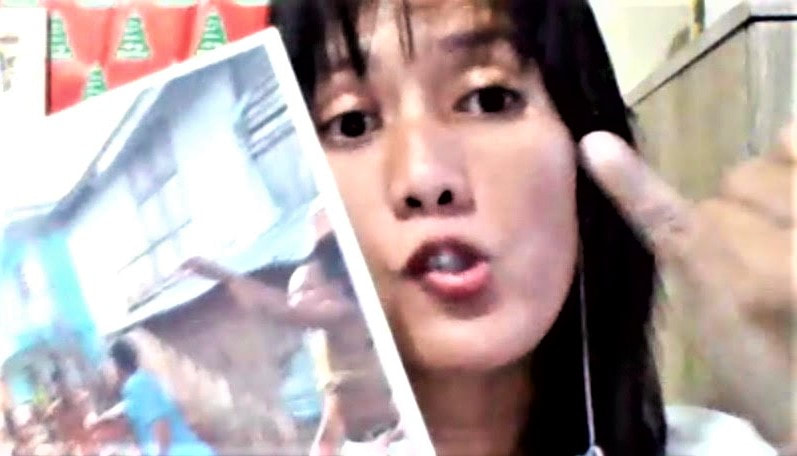|
It’s a simple tool I may use with people who feel stuck or who are struggling to gain traction with an issue. Imagine a person is facing a dilemma: they want to have more disposable income at the end of each month, but can’t work out how to achieve it. They face 3 principal options: to increase their income; to reduce their expenditure; or both. Or a person wants to lose weight and they, too, have 3 principal options, to: increase their physical exercise; to reduce their calorific intake; or both. A basic 4x4 grid can come in useful here. I may take a piece of paper or, if working online, open a whiteboard on screen that the other person can also see and write onto. On one axis, I will draw a polarity: ‘Willing to do’…’Not willing to do.’ On the intersecting axis: ‘Can do’…’Can’t do.’ It creates 4 possibilities: Willing to do and can do; Willing to do but can’t do; Can do but not willing to do; Can’t do and not willing to do. It also forms a visual graphic that segments different dimensions of experience. Now, in relation to each of the options (for instance: vis a vis income and expenditure; or exercise and dieting - above), I will ask the person to jot down their own responses in each quadrant. I will then invite them to reflect critically on what they have posted there: for example, What do they notice? How honest are they being with themselves? What presuppositions might they be holding? Who or what could be influencing what they have written in each area? Who or what could make a shift? More often than not, a person discovers they are indeed making assumptions that are limiting their horizons and actions; or that they are unwilling, for whatever reason, to do whatever it would take to achieve their goals. The first area can touch on blind spots (things they don’t see); the second on hot spots (things they don’t find easy to talk about). It may take considerable courage to admit to oneself that, for instance, ‘I’m not willing to put my money where my mouth is, or to take a risk.’ Spiritual-existential and psychological coaching can often prove helpful here, in that they enable a person to explore their underlying beliefs, values and motivations and what they or others may be doing subconsciously to sabotage themselves and their success. It creates a safe, supportive and challenging space and relationship in which to stand back, reflect, evaluate and re-engage from a more authentic stance. What do you desire most in life or work? Are you willing and able, or not? (See also: Grit and Get a grip)
26 Comments
‘I like to deal with things in the order in which they are going to kill me.' (Rita Cooper) In response to Rita’s satirical note (above), we could imagine prioritising in simple form by posing a question such as: ‘Is it going to kill me? a. Yes. b. No. c. Maybe.’ Sorted. :) A different question, orientated around vision and values, could be, ‘In 5 years' time, what will make me feel proud of the decision I take now?’ It brings existential-spiritual ethics and wisdom sharply into view. A recurring theme in leadership, coaching and organisation development (OD) is how to prioritise, especially when faced with an array of options and each with its own implications. The challenge is compounded if a context keeps shifting, or if different stakeholders value and demand different things. It can feel like being caught in a bewildering, exhausting, push-pull, tug of war. Common prioritisation tools include a map of urgency against importance; or value against cost (or risk); or probability (or difficulty, or effort) against impact. The Pareto Principle suggests that 80% of the most significant outcomes arise from 20% of actions or resource investments. A critical path analysis can help to determine what should take precedence at different phases of a timeline. Useful as they are, a limitation of these methods is that they are, essentially, tactical management techniques that aim to enable us to navigate from point A to point B. A transformational approach calls us to reflect broadly and deeply. A question of what B may represent and how I may choose to get there from point A draws vision, values, identity, meaning and purpose into the frame. What criteria do you use when choosing priorities? How do you decide who or what takes first place? ‘What is it your plan to do with your one wild and precious life?’ (Mary Oliver) Íñigo López de Loyola suggests a fast-forward in your imagination to the end of your life, then to ask yourself seriously from that standpoint what you will want your life story to have been. Having decided it, rewind back to the present and ensure that your vision of the future guides your priorities, decisions and actions now. This idea resonates with Stephen Covey’s 'begin with the end in mind', and Simon Sinek’s 'start with why'. According to John Kotter, if our vision is convincing enough to the mind and compelling enough to the heart, we are most likely to see it through. Without such a vision, we may drift meaninglessly. I believe the best visions are rooted deeply in ethics and values and, in essence, a fulfilment of them. I have been incredibly inspired by Jasmin’s vision, a poor follower of Jesus who lives among the poor in the Philippines: ‘Whatever status or power you have, use it for those who are vulnerable; whatever money you have, use it for the poor; whatever strength you have, use it for the weak; whatever hope you have, use it to bring hope to those who live without hope. Speak up for justice and truth – whatever the cost. Pray.’ The challenge is not just in the aspiration itself but in her sheer determination to live it out in practice. She scares me. My own vision is shaped by a trust in God too. I slip and slide on route and have sustained and caused too many scars to prove it, yet Jesus still influences profoundly the purpose, focus, boundaries and possibilities of my life and my work. As I get older, I'm experiencing a subtle and gradual shift from what I want to do in the future, to what legacy I want to leave behind me. It doesn’t feel like a mid-life crisis. Echoing Richard Rohr, it feels more like a falling upward than a falling apart. I still want to make a significant, positive and tangible difference in the lives of the poor and most vulnerable people in the world. I – you – we can be hope. What’s your vision for 2022 and beyond? How will it influence your decisions now? ‘For every complex problem there is an answer that is clear, simple and wrong.’ (H.L. Mencken) In a world that’s so often characterised by continual change, it appears that one thing that doesn’t change is our continual thirst for new acronyms. VUCA, RUPT or BANI – which best describes your view of reality? Which most helps you, or your clients, move forward to fulfil vision, values and goals, whilst navigating whom or whatever could fly in unexpectedly from left field on route? BANI, a more recent model than its predecessors, has some attractive and useful features for the current context. It acknowledges profound phenomenological dimensions of human experience, not simply the dynamics of the environmental realities we face. BANI draws attention to Brittleness, Anxiety, Non-linearity and Incomprehensibility and may provide a platform for addressing them. Brittleness recognises that those things we regard as secure can fall apart overnight. Anxiety points to associated social health risks of anxiety and depression. Non-linear means it’s hard to predict consequences of actions with certainty because influencing factors can spring up from anywhere. Incomprehensible proposes that sense-making is impossible and we can find ourselves bewildered. If that all sounds a bit abstract, think back to what you (and others) have witnessed and experienced in the past 2 years; how much of what has happened could have been known definitively in advance; what the impacts and implications have been for different people, groups and nations; how it has looked and felt; the deep questions it has raised; how clear and agreed a way forward is from here. Macro examples have included the ongoing climate emergency, the Covid19 pandemic, the plastic-in-the-oceans disaster and the migrant crisis. We’ve seen shifts in the world’s political and economic landscapes that have been, at times, so sudden and so dramatic that they’ve caused whiplash and backlash. We have felt the ripple effects in our organisations, communities and personal lives. What wisdom can BANI offer? Here are glimpses: Brittleness calls for resilience and collaboration; Anxiety: for empathy and human-spiritual relationship; Non-linearity: for adaptivity and agility; Incomprehensibility: for intuition and risk-taking. These are pointers to the kinds of qualities and capabilities we can develop for the future, with courage and humility as an underpinning stance. Do you feel dazed and confused in a BANI world? Curious to discover how I can help? Get in touch! ‘Stop deciding ahead of time what to discover.’ (John Shotter) It’s summer in the UK – holiday season. And I dislike planned holidays. I love to take holidays…but to decide and organise every detail in advance feels like sucking the life, the oxygen, the fun out of it! This can of course prove very tricky when sharing holidays with plan-ful people. For me, it’s a tight-loose principle. It’s about ensuring just enough structure to make it happen and, at the same time, lots of flex and freedom for serendipitous encounters and unexpected adventures to emerge. I like the joy, excitement and stimulation of not-yet-knowing so the idea of planned discovery feels strangely paradoxical to me. How can we know for definite in advance what we may discover? It’s like a training course where we formulate learning outcomes in advance: ‘This is what you will learn.’ How would it be if we were to frame it differently: ‘This is the material we plan to cover. Come prepared for an exciting adventure of discovery! Who knows where the journey could lead?’ The same can be true of team meetings or conversations with colleagues. How quickly we fall into formulaic patterns and routines. It creates a sense of predictability, which can be good, yet often leads to frustration and boredom. It engenders what Heidegger calls listening as ‘already listening’, that is, listening, anticipating and interpreting through the filter of what we have already decided or believe. How different it would be if we were to meet each other in an excited spirit of inquiry! So discovery can bring fresh energy, inspiration and innovation – yet what can we do to foster the conditions for it without trying to prescribe or design it ahead of time? Here are some ideas: Firstly, practise curiosity: be willing to not-know, experiment, take a risk. Secondly, be disruptive: do something different, try a new method, meet in a different place. Thirdly, step outside: visit other organisations, join cross-cultural teams, network widely. Try it – and see what you discover! Someone just called me, ‘Nixit’. It made me smile. :) I had posted this piece (below) on Facebook as a direct and deliberate challenge to bitter vitriol, negative stereotyping and harsh demonising on social media of people who voted ‘Leave’ in the UK-EU referendum last week.
I feel a bit nervous because, with frayed tempers running high this weekend, it’s very hard to speak and be heard. I can say, however, that everyone I know who voted ‘Remain’ did so with sincere beliefs and honourable intentions. I hope some will feel able to hear me. I hope I will hear too. I voted Leave. ‘Leave voters are inward-looking.’ OK. I’ve been to France, Germany, Netherlands, Belgium, Spain, Switzerland, Lichtenstein, Austria, Italy, Albania, Yugoslavia, Czech Republic, Greece, Turkey, Lebanon, Israel, West Bank, Uganda, Vietnam, Cambodia, Thailand, Singapore, Australia, Canada, United States. You? ‘Leave voters are ignorant and uneducated.’ OK. I have a first degree with honours, a postgraduate diploma with distinction, a masters degree with distinction. I’m a fellow of a UK professional Institute, have had over 100 articles published in journals and have spoken at various UK and international conferences. You? ‘Leave voters are selfish.’ OK. I’m not Mother Teresa. However, I’ve worked my entire adult life with charities and international NGOs in countries including UK, Germany, Albania, Lebanon, West Bank, Vietnam, Cambodia, Thailand, Singapore, Australia, Canada, United States. I’ve been a lifelong supporter of numerous organisations including Amnesty International and Greenpeace. You? ‘Leave voters are right wing, xenophobic racists.’ OK. I’ve been a lifelong leftist, worked in political/human rights for Latino people in El Salvador/Central America, worked in a Palestinian hospital for Muslim children with disabilities, worked in anti-Nazi projects in Germany, taught English to Vietnamese refugees, taught East European people, worked with African people from vulnerable contexts and people from almost every country in Asia. You? ‘Leave voters are nationalistic fascists.’ I’m pro-European and pro-International; pro-refugee and pro-migration; pro-democracy and pro-human rights. Until 2 years ago, I was passionately pro-EU. I voted Leave because, among other things, I feel desperately concerned about rising nationalism across the EU and beyond which is, in my view, fuelled by EU strategy, policy and behaviour. A lot of good people disagree with me and voted Remain. Respect. A lot of good people voted Leave too. We may have more in common than we know. That is my hope. ‘Who does what?’ Someone asked this during a coactive appraisal workshop I was running with Sue Powell last week. Their focus was on roles, responsibilities and systems: ‘Who invites feedback from others?’ ‘Who fills in the form?’ ‘Who follows up any agreed actions afterwards?’ A different set of questions can reframe the conversation entirely: ‘What are we here to do?’ ‘What is the purpose of the appraisal?’ ‘How shall we do this?’ ‘What approach will achieve it best?’ The latter conversation invites the appraisee into the process as an active participant, not as a passive recipient. In fact, it invites all parties into a potentially transformational cultural conversation, not simply a discussion about performance or even development. ‘What is important to us that we (insert various stakeholders here) are trying to achieve?’ It touches on existential beliefs, purpose and values as much as pragmatic goals, actions and other such considerations. ‘What’s your passion?’ ‘How might you/we know what difference your contribution is making?’ ‘What will need to happen for that to happen?’ ‘What are we ready, willing and able to agree on – here and now?’ ‘What responsibility are you willing to take to move this forward?’ ‘What will you need?’ It can turn an oft bureaucratic process into an energising, supportive and challenging conversation where personal, team and organisational aspirations are harmonised and synergised. In my experience, no system, no matter how well designed or how simple or sophisticated its forms are, can achieve this change. Essential ingredients include: vision and values that resonate with deeper spiritual/existential/social values; leadership and culture that welcome and affirm personal and distributed leadership; relationships that nurture diversity, mutuality and trust. ‘Who does what?’: a good question. ‘What are we here to do?’ ‘How shall we do this?’: great questions! A well-known management development agency invited me to take part in a masterclass in Appreciative Inquiry (AI) some years ago, at around the time when AI was first becoming popular in the UK. The idea was that I would write a review of the workshop afterwards that would be published in the agency's monthly journal. I have to confess that I wasn't exactly blown away by the experience. Phrases like 'Emperor's New Clothes' came to mind and I wrote a critical review accordingly. Needless to say, it wasn't published!
I have, however, used aspects of AI on numerous occasions since with different people and organisations and I have to say I've been impressed by the results. I like its emphasis on imagination, positivity and solutions. It fits well with my beliefs from social constructionism about how we create and co-create our own realities. Its discover, dream, design and destiny phases can envision and energise, inspire and motivate people far more than any problem-solving approaches I've seen or used. A simple question such as, 'What has inspired you in the last month?' really can transform the focus and energy in a team. The best article I've read on the foundations of AI and what it involves in practice is by Richard Seele (2008): An Introduction to Appreciative Inquiry. If you're interested in the AI and to learn more about it, Richard's article is well worth a glance. I have used, adapted and applied aspects of AI without ever having worked systematically through its 4-stage process. I'd be interested to hear from you if you have: what was the issue/opportunity you focused on, how did you approach it, what questions did you pose at each stage, what happened as a result? It was an energising experience, facilitating a group of leaders this week who are keen to build a new high performing team. We pushed the boundaries of normal ways of working to stimulate innovative ideas in all aspects of the team’s work. We used photos to create an agenda and physically enacted people’s aspirations to avoid falling into conventional patterns of heady, rational conversation. It felt very different to meeting ‘because that’s what we do’. There was a different dynamic, energy and momentum. Participants leaned actively into the conversation, not leaning back in passivity or boredom. Yet it can be a real challenge to break free from tradition, from norms that trap a team in ways of doing things that feel familiar and safe but, deep down, lack inspiration or effectiveness. In our meetings, how often do we pause before diving into the agenda to ask, ‘What’s the most important thing we should be focusing on?’, ‘How are we feeling about this?’, ‘What is distracting us or holding our attention?’, ‘What could be the most creative and inspiring way to approach this?’, ‘What do we each need, here and now, to bring our best to this?’, ‘What would be a great result?’ So I presented a simple model to the team with four words: content (what), process (how) and relationship (who) encircled around goal (where). In all my experience of working with individuals and teams, whether in coaching, training or facilitation, whether in the UK or overseas, these four factors are key recurring themes that make a very real difference. They seem to be important factors that, if we get them right, make a positive impact. They lead to people feeling energised, more alive, more motivated and engaged. Conversely, if we get them wrong, they leave people frustrated, drained of energy, bored or disengaged. Worse still, if left unaddressed, they can lead to negative, destructive conflict that completely debilitates a team. We can use a simple appreciative inquiry to reflect on this.‘Think back to your best experience of working with another person or team. How did you feel at the time?’, ‘Think back to a specific example of when you felt like that with the person or team. Where were you at the time? What were you doing? What were they doing? What made the biggest positive difference for you?’ One of the things we notice when asking such questions is that different things motivate and energise different people. That is, of course, one of the tricky parts of leading any team. So a next question to pose could be something like, ‘What would it take for this team to feel more like that, more of the time for you?’ and to see what the wider team is willing to accommodate or negotiate. Now back to the model with some sample prompts to check out and navigate with a client, group or team. Notice how the different areas overlap and impact on each other. It’s about addressing all areas, not just to one or two in isolation. However, having explored each area in whatever way or level suits your situation, you are free to focus your efforts on those that need special attention. Goal: ‘What’s your vision for this?’, ‘Why this, why now?’, ‘What are you hoping for?’, ‘What would make a great outcome for you?’, ‘What would be the benefits of achieving it or the costs of not achieving it?’, ‘Who or what else is impacted by it and how?, ‘Where would you like to get to by the end of this conversation?’, ‘An hour from now, what would have made this worthwhile?’ Content: ‘What’s the most important issue to focus this time on?’, ‘What is the best use of our time together?’, ‘What is the issue from your perspective?’, ‘How clear are you about what this issue entails?’, ‘What feelings is this issue evoking for you?’, ‘What do we need to take into account as we work on this together?’, ‘Do we have the right information and expertise to do this?’ Process: ‘How would you like to do this?’, ‘What approach would you find most inspiring?’, ‘What might be the best way to approach this given the time available?’, ‘Which aspects to we need to address first before moving onto others?’, ‘What would be best to do now and what could be best done outside of this meeting?’, ‘Could we try a new way that would lift our energy levels?’ Relationship: ‘What’s important to you in this?’, ‘What underlying values does this touch on for you?’, ‘How are you impacted?’, ‘How are you feeling?’, ‘What are you noticing from your unique perspective?’, ‘What distinctive contribution could you bring?’, ‘What is working well in the team’s relationships?’, ‘What is creating tension?’, ‘How could we resolve conflicting differences?’ The versatility of the model is that it can be reapplied to coaching, training and other contexts too. In a training environment you could consider, for instance, ‘What are we here to learn?’ (goal), ‘What material should we cover?’ (content), ‘What methods will suit different learning styles?’ (process) and ‘How can we help people work together well in this environment?' (relationship). In a coaching context it could look something like, ‘How do you hope to develop through engaging in this coaching experience?’ (goal), ‘What issues, challenges or opportunities would you like to focus on?’ (content), ‘How would you like to approach this together?’ (process) and ‘What would build and sustain trust as we work on these things together?’ (relationship). I’d be interested to hear from you. Do the areas represented in this model resonate with your own experiences? Which factors have you noticed tend to be most attended to or ignored? Do you have any real-life, practical examples of how you have addressed these factors and what happened as a result? In your experience, what other factors make the biggest difference? Calling has long-standing roots in theistic spiritual traditions, often associated with being ‘called by God’ to a certain way of life or to a specific course of action. Existential psychologists have commented on how sometimes it feels like a situation is calling for its own response from us. In both cases, the source of the calling is attributed to someone or something beyond us. It’s a phenomenon that can feel like an evocative pull, tugging at something deep within us.
I’ve experienced this many times since becoming a Christian, a strange intuition that feels beyond me, prompting or leading me in a certain direction. Sometimes it seems very clear or inspiring, at others it’s more of a vague notion, a restlessness that compels me to move or change. I’ve often experienced it in coaching relationships too, an almost irresistible impulse to speak or act that feels like revelation, an energising compulsion from the situation itself. It’s not magic, something I can make happen, something I can manufacture for myself. It’s sometimes unexpected, sometimes challenging and sometimes involves scary risk-taking. It’s not definitive either, something I can measure, test or prove in a lab. This can make the experience of calling feel mysterious, sometimes spiritual, a step in faith in response to a curious, invisible stimulus. It’s as if something ‘out there’ connects with something ‘in here’, setting up a dynamic resonance. So how to apply this in leadership and coaching? How to listen for and discern calling in the midst of so many other tasks and preoccupations that clamour for our attention? How to weigh up calling in order to act wisely? In my experience, there is no simple formula. It’s mostly about learning to be still, to live with awareness, to tune into my intuition, to be sensitive to prompts from the situation itself, to experiment and see what happens, to be open to God in prayer. I wish I could say I always follow this call. Sometimes I'm sceptical, sometimes I pull back for fear of embarrassment or failure. Nevertheless, I've seen and felt amazing things happen when I do listen and act. I would love to hear from others on this topic of calling. When have you felt called? What was the situation? What did the experience of calling feel like? What did you attribute the calling to? How did you act in response? What happened as a result? |
Nick WrightI'm a psychological coach, trainer and OD consultant. Curious to discover how can I help you? Get in touch! Like what you read? Simply enter your email address below to receive regular blog updates!
|








 RSS Feed
RSS Feed